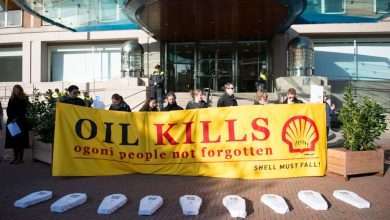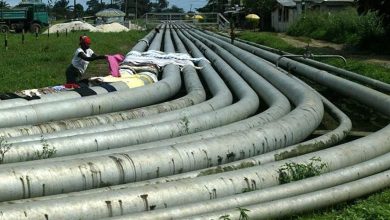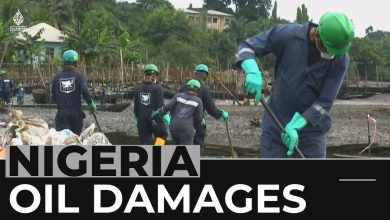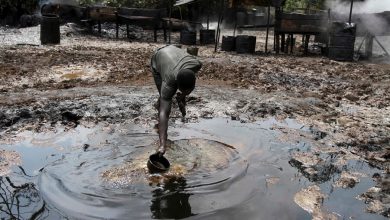Why Niger is the battleground of the new Cold War
ECOWAS, Nigeria should tread cautiously to prevent anarchy in the Sahel
The soldiers who toppled President Mohamed Bazoum knew that their action was not in the best interest of their country. They knew it would negatively impact the socio-econonic standings of Niger and the entire Sahel region. Based on the current tension within and outside Niger after the coup, it is right to conclude that the coup would escalate, rather than solve whatever issue they wanted solved.
The situation in the Sahel is not conducive for military incursion in democratic governance. The region is tensed, volatile and currently experiencing unprecedented economic turmoil. Apart from desertification, drought, famine and a problematic refugees crisis, the region is burdened by political instability, and conflicts. This has resulted to widespread insecurity. The causes of the conflicts vary, but the battle to control the limited arable lands remains key.
The instability in the region has created the opportunity for Islamic militants and jihadists to carry out some of the worst atrocities against innocent and unarmed civilians. They have succeeded in uprooting millions of people from their homes.
Most of the countries within the region power their economies through agriculture, with the majority of the population engaging in subsistent farming. But the region is rich in mineral resources like oil, gold and uranium.
Coupists acted ignorantly
The coupists had clearly anticipated that Western countries, mainly France and the US would kick against their actions and demand the reinstatement of Bazoum. There are 30 active French businesses in Niger, including those carrying out mining operations that worth defending by France. For now, it is evacuating it’s citizens and other Europeans out of Niger. Nobody can predict it’s next line of action. But it won’t allow Russia to displace it in its former colony without putting in a fight.
For the U.S., the country is a key partner in the fight against terrorism in the Sahel.There are about 1,100 U.S. troops in Niger, where the U.S. military operates out of two bases. In 2017, Niger approved the use of armed American drones from the country to target militants. According to the official website of the United States government, Niger helps the U.S. to “promote stability as a key member of the Multinational Joint Task Force (MNJTF) and the G-5 Sahel and peacekeeping contributor to missions in Mali and Central African Republic.”
That the coupists neglected these facts, speaks volumes of the level of support they enjoy from their backers. It should also be considered that they did not bother about the historic role the Economic Community of West African States (ECOWAS) had played in the past in promoting regional stability and democratic governance.
The biggest surprise is that they struck knowing fully that Niger could turn to a theatre of war where they could actively partake in the destruction of the semblance of infrastructure that previous administrations had struggled to build. Some of the soldiers loyal to General Abdourahmane Tchiani, who titles himself the “president of the National Council for the Safeguard of the Fatherland,” had tested combat in Libya and really know what it really means for a country to be at war.
From the body language of General Tchiani, and Colonel Amadou Abdramane, one of the coup plotters, who on state television warned France not to go ahead with an unverified plot to extract Bazoum, the coup is strongly backed by Russia.
There had been reports that the ousted President had in a recent interview offended France, and was deemed a threat to French interest. But when the same French interests became the targets of rioters, it pointed to a change of allegiance from France to Russia.
The violence against France’s diplomatic mission by protesters outside the French Embassy in Niamey had forced Emmanuel Macron’s office to issue a statement, warning that it would respond to attacks against French diplomats, armed forces or businesses.
Niger’s poverty reality
With a poverty rate of 48.9 percent and a per capita income of $420, Niger is one of the world’s poorest nations. It is landlocked, and suffers terribly from drought, which works against it’s quest to achieve food security. It has consistently occupied the bottom of the United Nations Development Programmes UNDPs Human Development Index. In 2017, it ranked 187tb out of 188 countries.
The dire economic decline of Niger is what you only see in resource rich African countries that have been cursed with their resources. The country’s revenue from uranium, and others minerals have not been utilized to improve living standards. Uranium mining is characterized by fraudulent deals and a lack of transparency. The revenues and taxes the country gets from the mostly French mining corporations end up in the pockets of corrupt individuals.
According to the African Development Bank (ADB) Economic Outlook on Niger in 2022, “The budget deficit widened to 6.6 percent of GDP in 2022 from 6.1 percent in 2021 due to public spending rising more than public revenue.…..”
But you can’t take away the fact that Niger has uranium that the world needs to power their nuclear plants. For most highly industrialized economies, mined uranium resources is a major feature in how they power their industries. Mined uranium resources have served as fuel for nuclear power generation for over 60 years.
An industry expert says that nuclear power currently serves 10 percent of global energy needs. In the coming years, global uranium demand is expected to grow. The International Atomic Energy Agency, IAEA, estimates that there are more than 450 power plants in operation in the world and more than 60 are under construction. It simply means that Niger has a product that will serve the world in the coming decades. It needs peace and the right government to utilize this resource for its people.
Russia’s West Africa assault
Some experts have concluded that Russia’s main interest in Niger is uranium and other minerals. But Russia holds the world’s fourth largest reserve of uranium. It is only behind Australia, which occupies the first position, while Canada and Kazakhstan occupy the second and third positions respectively.
Russia is in Niger to occupy the position of France, and enthrone a new regime of shady minerals dealings. Already, Russia, through the Wagner mercenary group, is firmly seated in Mali and Burkina Faso, Guinea, the Central African Republic and now Niger Republic to support military rule.
Moscow won the loyalty of the soldiers that overthrew elected governments by stationing fighters and providing them weapons to wage war against elected governments. Also, by highlighting the evils of colonialism and imperialism, Russia wants African countries to see it as a better alternative to the West.
The endless conflicts and the Islamic insurgency ravaging some parts of West Africa, and the consequent insecurity enabled Russia to cover this ground in a short time. For decades, Russia watched from the sidelines as the West exploited African countries. Then, China entered the picture with it’s development loans, trade and investments programmes that turned African countries to debtors who could lose their sovereignty depending on the terms of the loans they took.
Russia’s recent hosting of African countries for the second Russia Africa Summit in St. Petersburg was a lobby to get Africa’s support at the United Nations. Africa is among the largest regional voting blocs at the United Nations, and Russia needs the continent’s help to secure some UN resolutions that could go the way of Western powers.
Recall that in 2022 countries like Sudan, South Sudan, Burkina Faso, and Central African Republic abstained in the March 2022 and February 2023 UN General Assembly votes that demanded Russian withdrawal from Ukraine.
What really fuels Russia’s quest to advance into Africa and struggle for a piece of the pie decades after it’s sacrifices in the independent struggle in Southern Africa? It is the mindset of the current Russian leaders. Putin, and other top Russian politicians, especially his former colleagues from the KGB, continue to see the collapse of the old Soviet Union as disaster that drastically reduced Russia’s influence in global politics.
Their nationalistic stance on Russia’s destined role in global affairs and how the U.S. and it’s Western allies frustrate every move to achieve it has motivated them to wage war in places the West once reigned supreme.
Having lost in its backyard as
the West made incursions into the territory of former Soviet Union federating units, Russia headed to Africa. Despite going to war with Georgia in 2008 over the self-proclaimed Ossetia Republic, Georgia still signed a “strategic partnership” treaty with the U.S. that same year. As for Ukraine, the moment it started finalizing plans to join NATO, Russia chose war.
The success recorded by Russia in the Sahel in recent times is unprecedented in empire building in Africa. Through the Wagner Group, run by Putin’s cronies, Russia has penetrated in almost every area by sending in business people, technical people and political strategists to take over.
ECOWAS’ hasty strike
Before soldiers seized power in Mali, the mere mention of the Economic Community of West African States (ECOWAS), checked the ambition of power hungry soldiers eyeing political leadership without election. The influence of ECOWAS began to decline in West Africa in May 2021 when that coup happened. The Guinean coup followed suit a few months later, and in 2022, both Burkina Faso and Chad experienced theirs.
That the most powerful regional body in Africa could not muster the resources to act or mobilize against the coupists was a flaw that encouraged other over ambitious soldiers within the region to attempt to truncate democracy.
ECOWAS, which laudable role in restoring law and order in Liberia and Sierra Leone, must realize that the real enemies are not the soldiers, but Russia, which Wagner Group provides them the resources to launch military actions. In the Central African Republic (CAR), which has been in crisis since 2013, the Wagner Group provides support in the reorganization of the army.
The Sahel is the new epicentre of the Cold War not because ECOWAS decreed it, but because Russia and the West are almost done with Ukraine, where the Russians have been disappointed by the turn of events.
.
ECOWAS under the leadership of President Bola Tinubu has taken a bold stance by calling on the soldiers to restore democratic governance. Such pressure backed with continent wide sanctions could force the coupists to a tight corner and announce a handover date.
The option of military intervention might give Russia and the West the perfect opportunity to turn the entire Sahel into a theatre of war through their proxies. The remnants of the weapons used in the execution of the Arab Spring and the Libyan war that landed in the Sahel are currently in the hands of criminals and terrorists groups.
Besides, Nigeria being the chief sponsor of ECOWAS is going to commit cash at a time Nigerians are protesting the rising cost of living. The same Nigeria will send in soldiers from a depleted army that has lost men in the execution of more than a decade-old war against insurgency. Diplomacy is the only option available to ECOWAS.
Also, no country that values it’s peace and stability would wage a war against it’s next door neighbour over coup when the citizens of the affected country have trooped out to celebrate the coup. It suggests that the elected government shunned good governance and that the people were fed up with it.
Emmanuel Okolie is Richcreek’s research analyst and political director.




